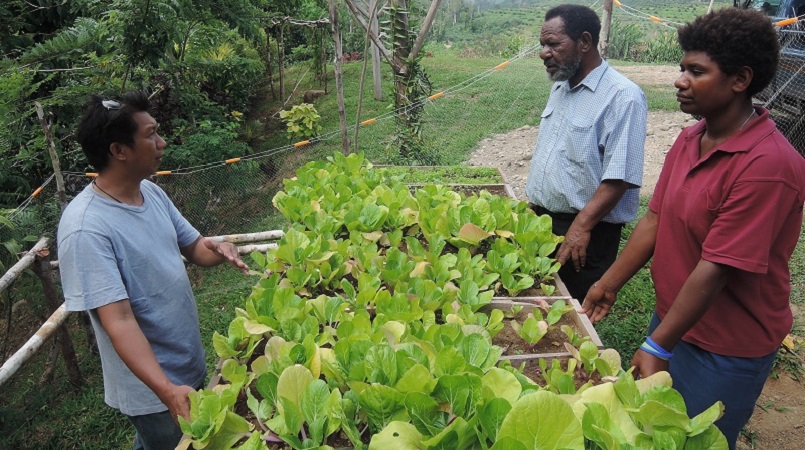
All forms of gardening can be both rewarding and satisfying and in light of rising costs of food and an increasing population due to development, small front or back yard vegetable gardening can create more self-reliance in growing our own food.
This is according to Ario Movis, New Guinea Islands (NGI) regional manager of the Department of Livestock when he visited Tzen Plantation in Pomio District, East New Britain.
He was interested in efforts at fresh produce farming, in particular he was impressed with the front and back yard vegetable gardens around the oil palm plantation Mess at Awatka.
Mr Movis said vegetable gardening would ensure organic vegetables such as lettuce, tomatoes, spring onions and other varieties of easily grown vegetables could provide food when rising costs and or the demand of eating healthily was of importance.
He was making his second visit to the oil palm plantation site following his trip to witness the first basic agriculture course involving non-working and working locals and other plantation workers for the plantation.
While at the plantation site he took the time to see and learn about how Mess staff and gardening assistants worked the vegetable gardens.
He gave pointers on how to increase yield using simple techniques of irrigation and soil composting, but overall he was impressed at how attractive the vegetable gardens looked so far.
Mr Movis also visited the 10 hectare RUDAS farm, which also provides simple gardening and livestock, tourism and hospitality, and marketing training for locals within the Ili-Wawas Integrated Rural Development project area inside the Sinivit and East Pomio LLG areas.
RUDAS stands for Rural Development Assistance program which is a comprehensive program designed by the oil palm developer, Tzen Niugini Limited, to assist with improving the livelihoods of the local people in all the oil palm development impact sites in the Pomio and Gazelle districts.
Mr Movis said while current efforts are conducive, he urged the RUDAS team to also involve DAL to assist in developing or imparting updated agricultural and livestock skills and techniques in any future trainings.
He also said with the increased population due to the oil palm development, people must also be encouraged to used limited house-hold space either in their front or back yards to grow their own vegetables for own self-reliance.
Photo:
